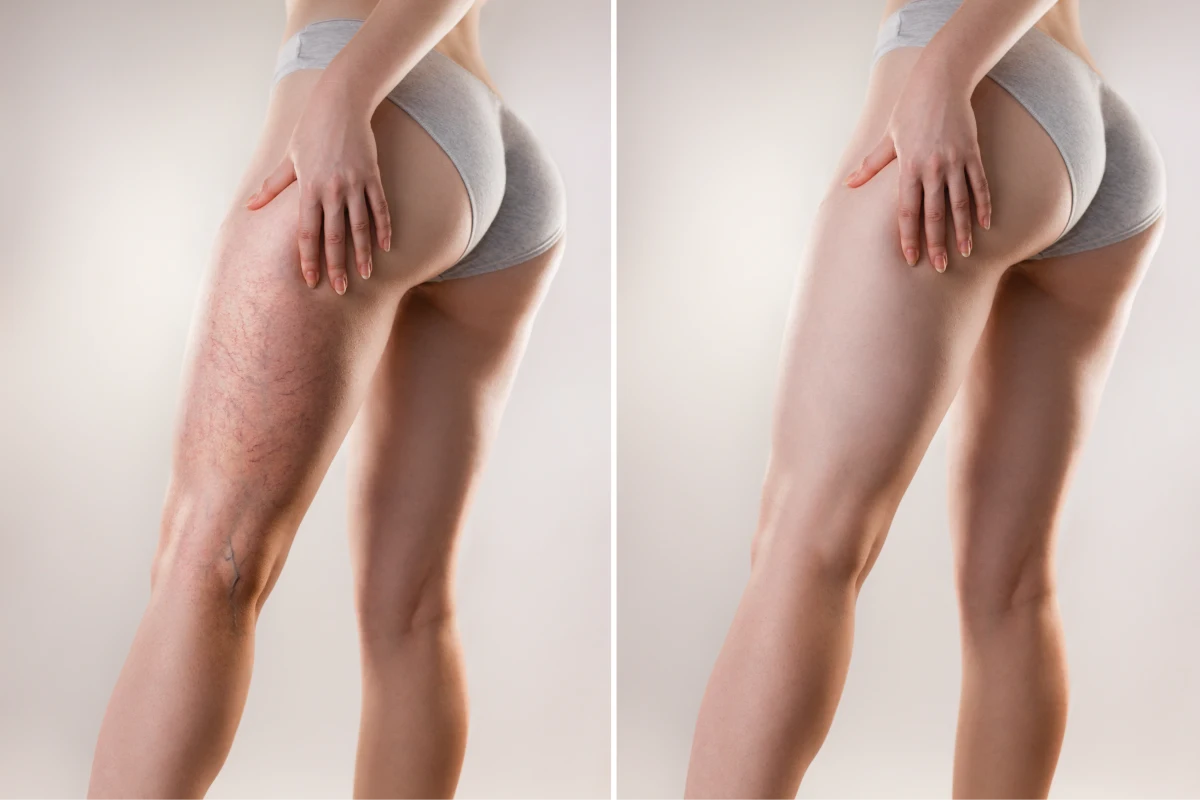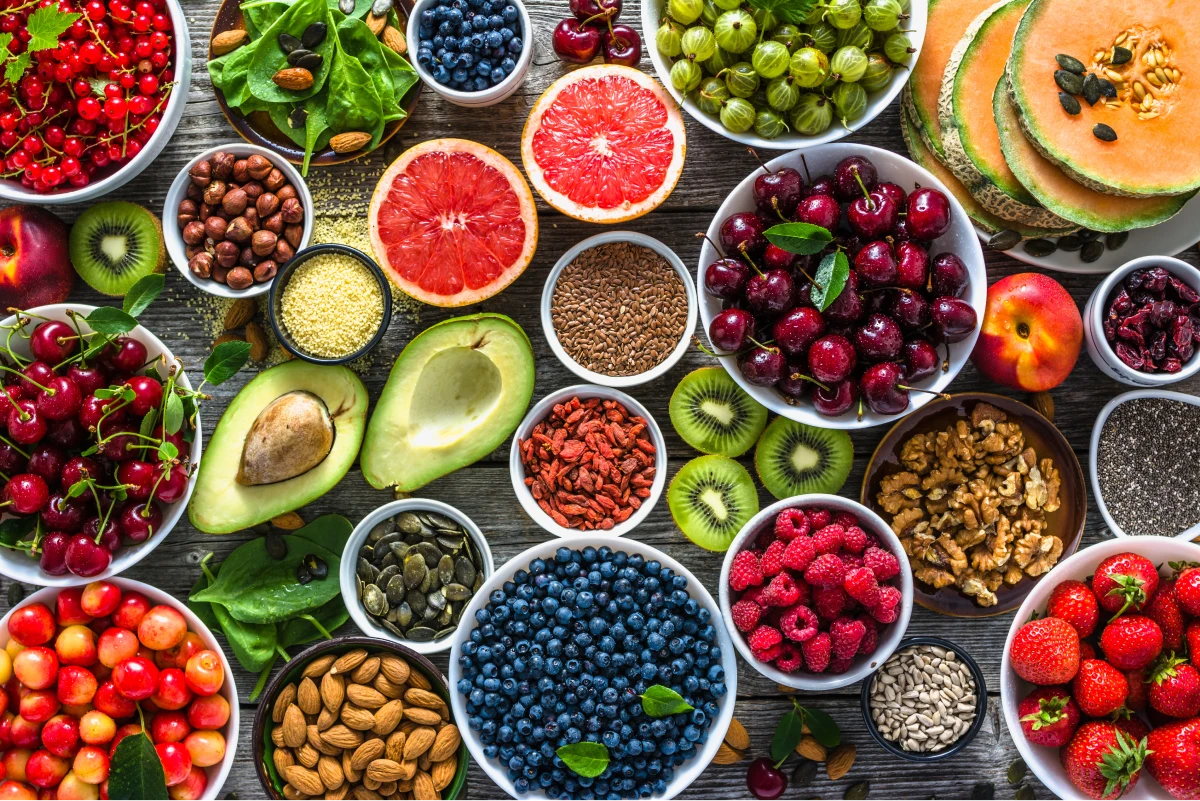Did you know you can keep your veins and arteries healthy without seeing a doctor? Yep! Your lifestyle is important in supporting blood vessel health and keeping your veins and arteries running smoothly.
A healthy lifestyle can prevent serious conditions like varicose veins, deep vein thrombosis, and even coronary artery disease.
With just a few tips adding to your daily habits you can improve your overall cardiovascular health, better circulation, lower blood pressure and healthier veins and arteries.
In this guide we’ll get into the simple but powerful lifestyle changes that promote healthy blood flow and help you avoid future vein problems. Let’s make vein and artery health easy and enjoyable!

The Importance of Healthy Veins and Arteries
Your veins and arteries are the highways of your circulatory system, delivering oxygen-rich blood to your entire body and carrying deoxygenated blood back to the heart.
Healthy blood flow means your body’s tissues and major organs get the nutrients and oxygen they need to function properly. But when your blood vessels are compromised – whether from high blood pressure, poor circulation, or other risk factors – this can lead to a domino effect.
When the vein walls weaken or blood flow slows, common issues like:
- Varicose veins;
- Venous insufficiency;
- Blood clots.
In the US alone, 20 million people are affected by varicose veins, and over 600,000 people die each year from cardiovascular system disease. So keeping your veins and arteries healthy isn’t just about avoiding discomfort – it’s about preventing life-threatening conditions like heart disease, stroke, and deep vein thrombosis.
Remember, veins and arteries always work together:
- Arteries take oxygen-rich blood from your heart to your organs
- Veins return deoxygenated blood back to your heart
When any part of this vascular system breaks down it affects your overall health. And with the right lifestyle changes you can support your vascular system, reduce the risk of varicose veins and support your overall well-being.

Key Lifestyle Changes for Better Vein Health
You don’t have to change your life to 180 degrees to keep your veins and arteries healthy. Small changes can make a big difference if you do it regularly. Here’s how you can take control of your vascular health today:
Eat a Balanced Vein Friendly Diet
How you feed your body plays a big role in keeping your veins and arteries healthy. Foods high in vitamins, antioxidants, and healthy fats help increase blood flow, reduce inflammation, and support proper blood circulation. You need to include in your diet the following:
- Leafy Greens:
- Spinach and kale are high in vitamin C and nitric oxide production.
- Nitric oxide helps relax blood vessels and improve circulation and artery health.
- Healthy Fats:
- Olive oil and avocados reduce the risk of clogged arteries and overall cardiovascular health.
- Fiber-rich foods:
- Whole grains, fruits, and vegetables help regulate blood pressure and cholesterol levels;
- Reduce the risk of varicose or spider veins.
Avoid processed foods, which are high in sodium and unhealthy fats. These can cause high blood pressure, poor circulation, and even fatty deposits.
- Frozen meals, such as pizzas, pasta dishes, and TV dinners, are high in sodium and trans fats, which can lead to heart disease and other health issues.
- Instant noodles are high in sodium and contain unhealthy fats from deep frying or high-fat flavoring packets.
- Potato chips and French fries are deep-fried in oil, so they are high in sodium and unhealthy fats and have no nutritional value.
- Processed meats such as deli meats, sausages, bacon, and hot dogs are high in sodium and saturated fats.
- Many commercial dressings, sauces, and gravies are high in sodium and unhealthy fats. Examples are mayonnaise, soy sauce, ketchup, barbecue sauce, and bottled salad dressings.
Move with Exercise
Regular exercise is one of the best ways to support artery and vein health. Physical exercise:
- Improves blood flow,;
- Strengthens your heart;
- Prevents blood clotting by keeping the blood moving.
Even low-impact activities like walking, swimming, or cycling can help keep veins healthy and reduce blood pressure.
If you have a sedentary lifestyle, make it a goal to move more throughout the day. Stand up and stretch every 30 minutes and incorporate more physical activity into your daily routine to keep your legs healthy.
Drink Enough of Water
The human body is composed of approximately 60% water, that’s why water is important for circulation.
Dehydration can cause blood to thicken, making it harder for the veins to push blood through the body.
Drinking enough water each day keeps blood thin and promotes smooth blood flow through the veins and arteries.
Be at a Healthy Weight
Carrying excess weight puts extra pressure on your veins, especially in your legs, which can lead to varicose and spider veins.
Being at a healthy weight through a balanced diet and regular exercise reduces this pressure and save your veins from extra work and improve overall health.
Smoking is a Bad Idea
Smoking is one of the worst habits for your vascular health. It damages the thin layer of cells (endothelial cells) that line your blood vessels, causing lower circulation, high blood pressure, and increased risk of blood clots and heart disease.
Quit smoking, and you will see a big improvement in your cardiovascular system and reduce your risk of serious vein problems.
Manage Stress and Get Enough Sleep
Chronic stress and lack of sleep can raise blood pressure, compromise blood flow, and increase the risk of cardiovascular problems. To support your vascular health, find ways to manage stress, such as:
- Mindfulness;
- Yoga;
- Deep breathing exercises;
- Aim for 7-8 hours of quality sleep each night;
With these easy and simple life changes you can take control of your artery and vein health, prevent common vascular issues, and promote healthy circulation throughout your body.
Daily Habits for Blood Vessels and Vein Health
Healthy veins and arteries don’t happen overnight – the result of daily habits supporting your vascular system. Making small changes to your daily routine can:
- Improve blood circulation;
- Reduce the risk of developing varicose veins;
- Increase the long-term cardiovascular health;
Let’s look at how you can care for your blood vessels and support vein health with a few simple tweaks.
Blood Flow: Move to Prevent Vein Disease
A sedentary lifestyle can cause poor blood circulation, which can lead to serious vein-related issues like varicose and blood clots.
According to the Centers for Disease Control and Prevention (CDC), 25% of adults in the US are inactive, which puts them at higher risk factors.
Physical exercise can make all the difference! Movement helps:
- Improved blood circulation strengthens vessels and prevents blood from pooling in the legs, which is a common cause of varicose veins.
- You don’t have to be a marathon runner, but incorporating activities like walking, biking, or yoga into your day will help keep your veins healthy and the circulation of oxygenated blood more strong.
- If you have a desk job, make it a habit to stand up and stretch every 30 minutes. Sitting for long periods can slow down blood flow and cause blood to thicken, which increases the risk of blood clots.
- Even a quick walk around the office helps improve blood flow and work of the circulatory system and increase overall well-being.
Blood Pressure: Elevate Your Legs and Don’t Cross Them
Proper blood circulation is key to healthy veins, and one simple habit to improve circulation is elevating your legs whenever you can.
By raising your legs above heart level for 15-20 minutes a day, you help the blood circulate more easily back to your heart, reducing the pressure on your vein walls and preventing future varicose issues.
Another small but effective tip is to not cross your legs while sitting. Crossing your legs puts extra pressure on your veins which can cause circulation problems and make it harder for blood to flow freely.
Small changes like these can make a big difference in vein health.
Vein Walls: Compression Socks for Extra Support
If you are at hire risk of getting varicose veins – whether due to genetics, pregnancy or long hours on your feet – compression socks can be a lifesaver.
Compression socks help improve circulation by gently squeezing the legs, which supports veins and encourages blood to flow more easily back to the heart.
Compression socks, whether you are standing all day or sitting at a desk, can help prevent blood from pooling in your legs and reduce the risk of vein problems.
It’s a small investment to maintain healthy veins.
Health Benefits of Food to Support Artery and Vein Health
When you choose to maintain healthy veins, the first thing that comes to mind is changing your food habits and thoughts to incorporate a healthy diet rich in the much-needed micro- and macro elements, iron, vitamin C, and other healthy things. But where to start?
Let’s try to find a way to improve our health with maintaining healthy veins through extend of healthy food habits.
What you eat has a big impact on your vascular health. A diet rich in nutrients helps:
- Keep your veins and arteries healthy.
- Promotes ease blood circulation
- Reduces the risk of vein problems:
- Varicose veins;
- Blood clots;
- Clogged arteries;
Let’s get into the health benefits of food supporting your blood vessels and overall health.
Blood Vessels: Eat Your Way to Health
A healthy diet is the key to keeping your blood vessels in top condition. Some foods are known to support vein health and circulation and reduce inflammation. Your options may include:
- Leafy Greens:
- Spinach, kale, and arugula are rich in vitamins and antioxidants, including vitamin C, which supports endothelial function (the thin layer of cells that line your blood vessels).
- Vitamin C also helps strengthen vein walls, making it harder for varicose veins to form.
- Leafy greens are packed with nutrients that promote healthy blood circulation and prevent circulation problems.
- Healthy Fats:
- Olive oil, avocados, and nuts are great for your heart health and circulation.
- Olive oil, in particular, has been shown to reduce inflammation and improve blood vessel elasticity, which helps prevent clogged arteries and promote smoother blood circulation.
- Fiber-Rich Foods:
- Whole grains, beans, and berries are high in fiber, which helps regulate blood pressure and cholesterol levels.
- This is important to prevent fatty deposits from building up in your arteries, reducing the risk of vein disease and other cardiovascular system diseases.
Blood Circulation: Eat Antioxidant-Rich Foods
Antioxidants are your blood vessels’ BFFs. They improve:
- Blood circulation;
- Reduce inflammation;
- Prevent damage to the veins and arteries.
Here are the foods that are good for circulation:
- Berries:
- Blueberries, strawberries, and blackberries are packed with antioxidants that support vessel health and circulation.
- Research shows that people who regularly eat antioxidant-rich foods have better blood flow and a reduced risk of vein disease.
- Citrus Fruits:
- Oranges, lemons, and grapefruits are high in vitamin C, which supports vein walls and produces nitric oxide – a molecule that promotes healthy blood flow by relaxing the blood vessels.
- Improving the circulation of these fruits can help prevent varicose veins and support your overall well-being.
Blood Pressure: Lower It with Heart-Healthy Foods
High blood pressure is a major contributor to vein problems and can weaken the vein walls making you more prone to varicose veins and blood clots.
The good news is that the right diet can reduce blood pressure naturally:
- Potassium Rich Foods:
- Bananas, sweet potatoes, and spinach are rich in potassium, which helps regulate blood pressure by balancing out the effects of sodium in the body.
- Keeping your blood pressure in check is important for supporting vein health and preventing long-term damage to your blood vessels.
- Garlic:
- Garlic is a superstar when it comes to cardiovascular health.
- It has compounds that decrease blood pressure, reduce inflammation, and even prevent blood clotting, which can improve circulation and support healthy veins.
Clogged Arteries: Eat Foods That Fight Plaque Build-Up
Clogged arteries can lead to serious health problems, from heart disease to deep vein thrombosis. To keep your arteries clear and healthy, eat foods that reduce plaque build-up and support overall cardiovascular health:
- Fatty Fish:
- Salmon, mackerel, and sardines are rich in omega-3 fatty acids, which reduce inflammation, lower blood pressure, and prevent blood clot formation.
- Omega-3s also prevent the thickening of blood, which can reduce the risk of clogged arteries and improve blood flow.
- Nuts and Seeds:
- Almonds, walnuts, and chia seeds are high in healthy natural fats and antioxidants that support blood vessel health and circulation.
- These foods reduce bad cholesterol levels, which can cause clogged arteries, and provide your body with essential nutrients.
Add these foods to your daily meals, and you’ll support veins and arteries in health and keep overall wellness. A diet with these nutrients will reduce your risk of vein problems and healthy blood flow.

When to See a Doctor
While making lifestyle changes like being active, eating well, and exercising regularly can go a long way in keeping your veins healthy, there are times when professional help is needed. If you’re experiencing any of the following symptoms, it’s time to see a board-certified vascular surgeon:
- Leg Pain or Swelling:
- If you have ongoing discomfort or swelling in your legs, it could be low circulation or a more serious condition like deep vein thrombosis (DVT), where thicker blood can cause clots.
- Visible Varicose:
- Some varicose is just cosmetic issues;
- Others are a sign of more serious vein disease;
If you see bulging or painful veins, a vascular specialist can assess you and recommend the right treatment to prevent further problems.
- Non-Healing Wounds or Sores:
- Wounds that don’t heal, especially on the legs or feet, could be caused by bad circulation or circulatory system problems.
- In these cases, medical intervention is necessary to promote healing.
- Leg Numbness or Weakness:
- Numbness, tingling, or weakness in the legs could be because of poor blood circulation.
Getting treatment early will give you relief and prevent further complications. Regular checkups with a vascular surgeon will give you peace of mind, help you maintain the benefits of an active lifestyle, and decrease your risk of future vein problems.
Take Control of Your Vein Health – Contact Beso Vein Clinic!
If you have vein concerns or symptoms that don’t improve with lifestyle changes, don’t wait – contact Beso Vein Clinic today.
Our board-certified vascular surgeons will guide you through personalized treatment options that fit your needs.
Make the habits and know when to get help and you can have proper circulation, active lifestyle and decreased risk of future problems.